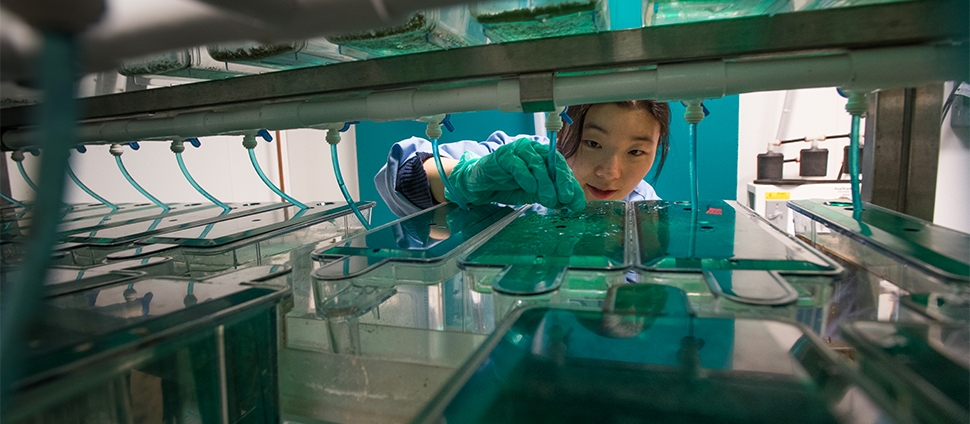Document Type
Article
Publication Date
2-1-2022
Publication Title
Protist
Abstract
Symbiotic relationships between heterotrophic and phototrophic partners are common in microbial eukaryotes. Among Arcellinida (Amoebozoa) several species are associated with microalgae of the genus Chlorella (Archaeplastida). So far, these symbioses were assumed to be stable and mutualistic, yet details of the interactions are limited. Here, we analyzed 22 single-cell transcriptomes and 36 partially-sequenced genomes of the Arcellinida morphospecies Hyalosphenia papilio, which contains Chlorella algae, to shed light on the amoeba-algae association. By characterizing the genetic diversity of associated Chlorella, we detected two distinct clades that can be linked to host genetic diversity, yet at the same time show a biogeographic signal across sampling sites. Fluorescence and transmission electron microscopy showed the presence of intact algae cells within the amoeba cell. Yet analysis of transcriptome data suggested that the algal nuclei are inactive, implying that instead of a stable, mutualistic relationship, the algae may be temporarily exploited for photosynthetic activity before being digested. Differences in gene expression of H. papilio and Hyalosphenia elegans demonstrated increased expression of genes related to oxidative stress. Together, our analyses increase knowledge of this host-symbiont association and reveal 1) higher diversity of associated algae than previously characterized, 2) a transient association between H. papilio and Chlorella with unclear benefits for the algae, 3) algal-induced gene expression changes in the host.
Keywords
Chlorella, Fluorescence microscopy, Genomics, Protists, Symbiosis transcriptomics, TEM
Volume
173
Issue
1
DOI
10.1016/j.protis.2021.125853
ISSN
14344610
Creative Commons License

This work is licensed under a Creative Commons Attribution 4.0 International License.
Rights
Licensed to Smith College and distributed CC-BY 4.0 under the Smith College Faculty Open Access Policy.
Recommended Citation
Weiner, Agnes K.M.; Cullison, Billie; Date, Shailesh V.; Tyml, Tomáš; Volland, Jean Marie; Woyke, Tanja; Katz, Laura A.; and Sleith, Robin S., "Examining the Relationship Between the Testate Amoeba Hyalosphenia papilio (Arcellinida, Amoebozoa) and its Associated Intracellular Microalgae Using Molecular and Microscopic Methods" (2022). Biological Sciences: Faculty Publications, Smith College, Northampton, MA.
https://scholarworks.smith.edu/bio_facpubs/274



Comments
Peer reviewed accepted manuscript.